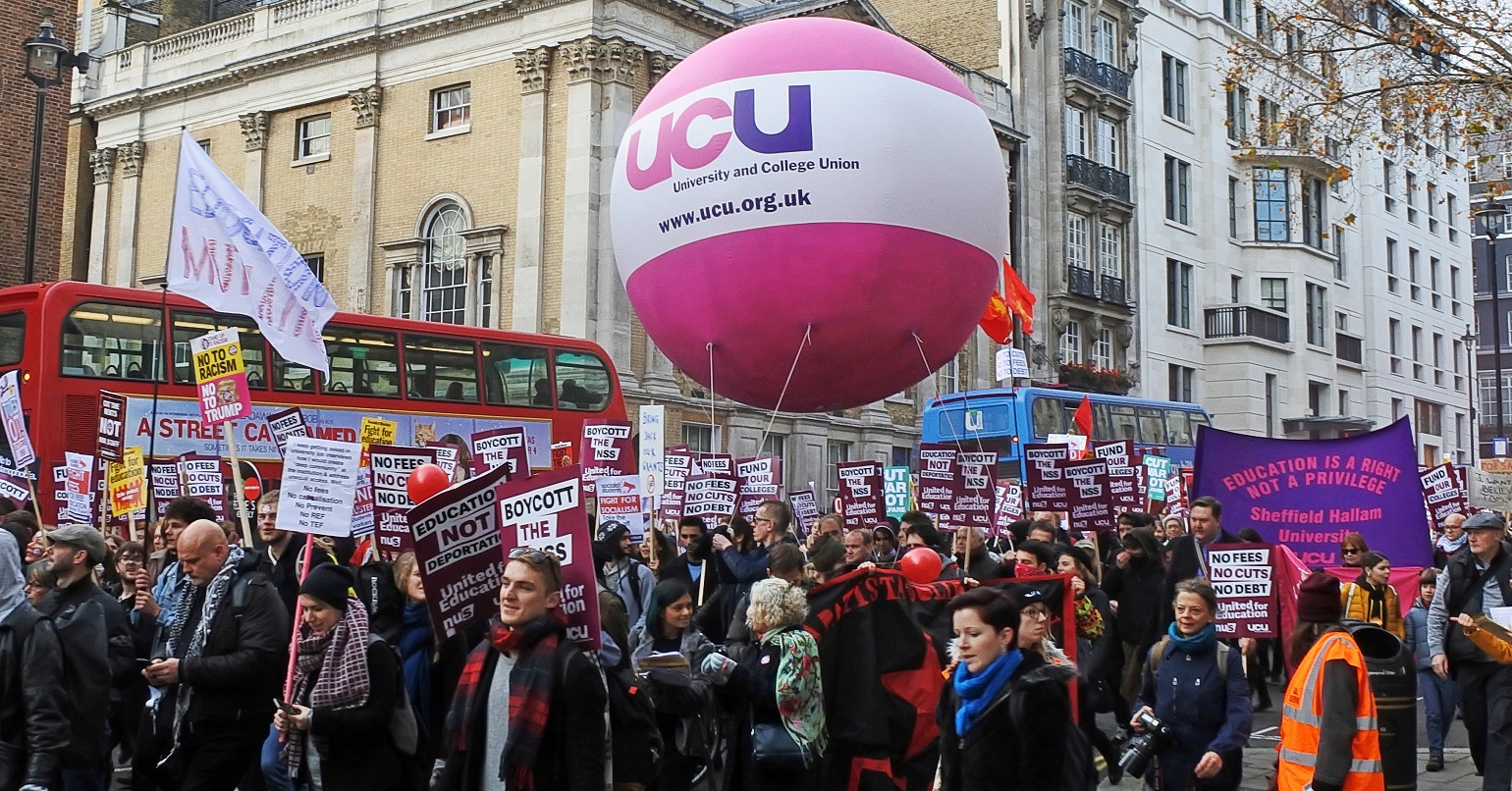70,000 university staff set to strike after historic UCU ballot victory

Over 70,000 university staff at 150 universities are set to take strike action after University and College Union (UCU) members overwhelmingly voted in favour of industrial action in two historic national ballots. Staff were balloted in two different disputes – one on pay and conditions, and another on cuts to pensions.
In the pay and conditions ballot, the vote for strike action was 81.1% and the turnout was 57.8%. In the pension ballot, the vote for strike action was 84.9% and the turnout was 60.2%. Staff also voted yes overwhelmingly for action short of strike in both ballots. Under the UK’s anti-trade union laws, in order for a strike to legally take place, over half of all members in a workplace need to vote for strike action.
The results of the ballot are highly significant. There have been previous strikes across the higher education sector coordinated by UCU in recent years. However, these have taken place at individual workplaces, rather than at all universities concurrently. UCU has become the first union to secure a national mandate for action in the education sector since the recent raft of anti-trade union laws were passed in 2016
The UCU has said the result is a clear indication of the anger felt by university staff and have called on university vice chancellors to enter negotiations and make improved offers to avoid disruption.
UCU’s higher education committee will meet on Thursday 3 November to decide the next steps the union will take to pressure employers to begin meaningful negotiations.
UCU general secretary Jo Grady said, “Today history has been made by our members in universities, who in huge numbers have delivered an unprecedented mandate for strike action.
“The vice chancellors who run universities have repeatedly and in a coordinated fashion come after our members. Well, now it’s 150 bosses against 70,000 university workers who are ready and willing to bring the entire sector to a standstill, if serious negotiations don’t start very soon.
“University staff are crucial workers in communities up and down the UK. They are sending a clear message that they will not accept falling pay, insecure employment and attacks on pensions. They know their power and are ready to take back what is theirs from a sector raking in tens of billions of pounds.”
PS. We hope you enjoyed this article. Bright Green has got big plans for the future to publish many more articles like this. You can help make that happen. Please donate to Bright Green now.
Image credit: It’s No Game – Creative Commons




Leave a Reply